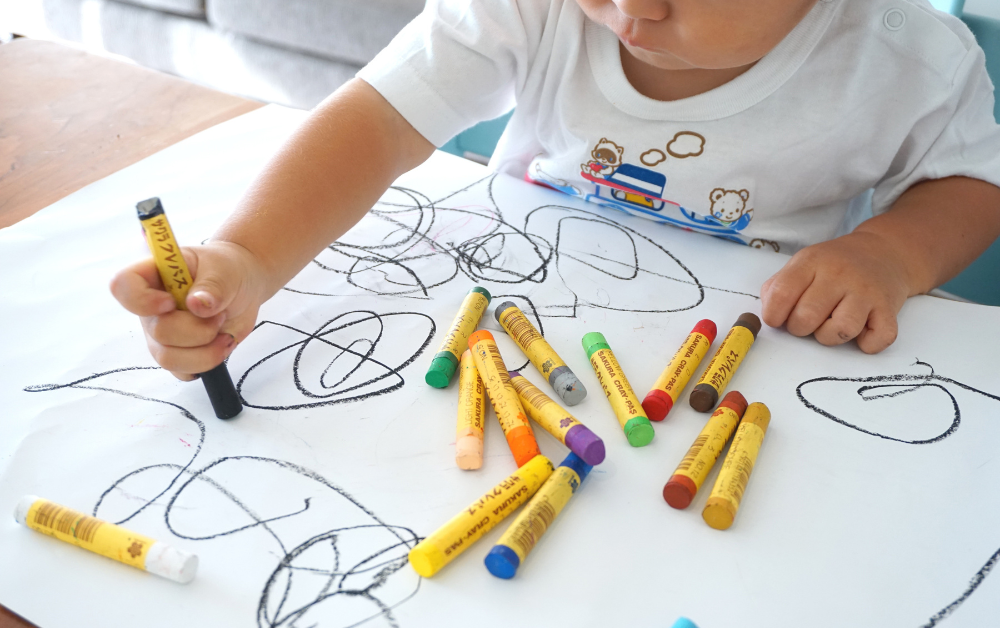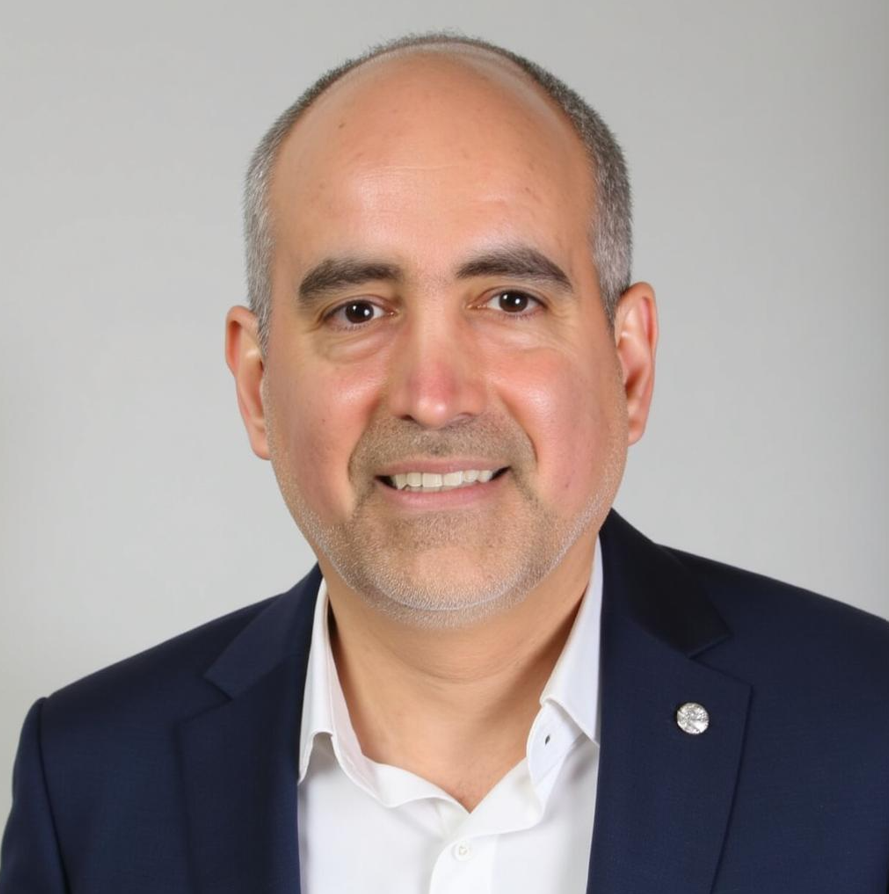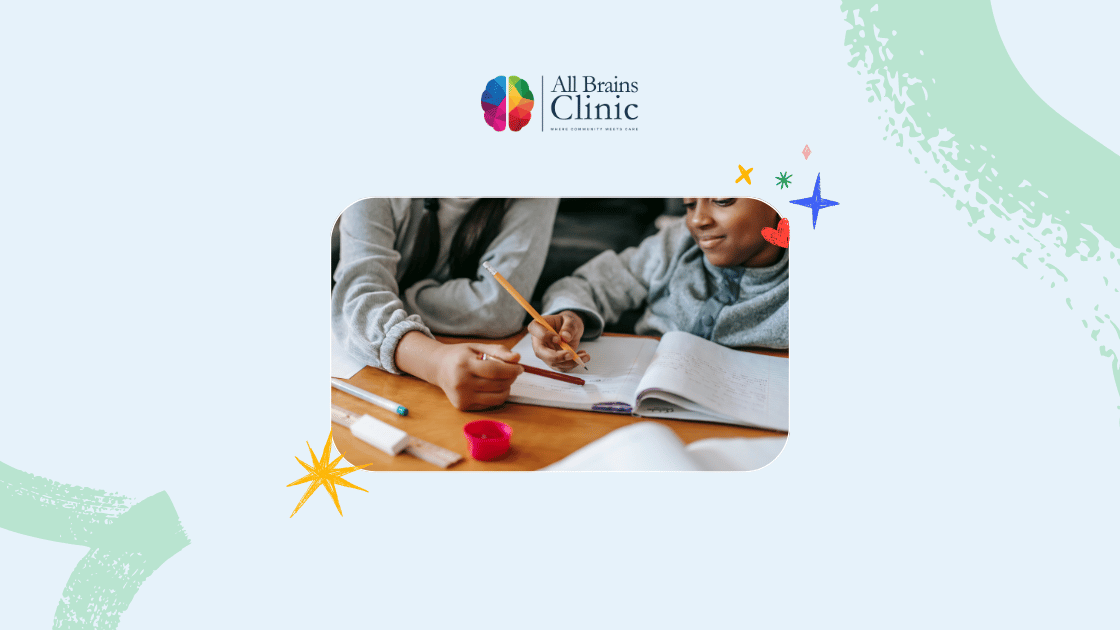As a parent, you know your child better than anyone. So it’s natural to feel concerned when they struggle to understand what people are saying or seem confused by simple instructions. You might wonder: Is it just a phase? Are they not paying attention? Or could something deeper be going on?
The question you might be asking here is, what type of disability affects how a person understands words? One common and often overlooked reason for these struggles is a language-based learning disability. A child may have difficulty in processing the meaning of the words they hear or read, and that’s related to conditions like language processing disorder and receptive language disorder.
The good news is that with the right support, children with these conditions can thrive in both communication and learning at school. As a parent, it’s necessary to be on the watch for the symptoms. In this guide, we’ll break it down for you clearly and simply.

What Is Language Processing Disorder?
Language Processing Disorder (LPD) is a type of learning challenge that affects how someone understands, communicates, and works with language. It's important to note that people with LPD usually have normal intelligence and don’t have hearing or speech issues. Those with LPD might find it tough to use and understand spoken and written language, which can make communication and learning a bit more tricky for them.
It’s important to know that a language learning disorder is different from an Auditory Processing Disorder (APD). Auditory processing disorder, often referred to as APD, is a unique type of hearing challenge that occurs when something affects how our brain processes sounds. Unlike ear damage, which can lead to different hearing issues, APD is all about understanding what we hear. You might also hear it called central auditory processing disorder (CAPD). It can affect anyone, but it’s most commonly seen in children and older adults.

Receptive Language Disorder in Children
Receptive Language Disorder is a condition where a child has difficulty understanding spoken or written language. It doesn’t mean that they’re not paying attention; rather, their brain has difficulty making sense of the words they hear or read. To them, processing language can be really challenging despite having normal hearing or intelligence.
Here are some challenges that children with a receptive language disorder deal with:
- Struggling with everyday communication
- Having trouble following multi-step directions or understanding new vocabulary
- Lack of response when spoken to, often due to lack of understanding, not defiance
- Some children rely on observing others for cues, making them appear distracted or withdrawn
These are the signs you should watch out for:
- Delay in learning new words
- Limited vocabulary for their age
- Difficulty understanding gestures or questions
- They may struggle to grasp the meaning of stories or classroom instructions
Remember that these challenges can have a negative impact on the confidence and academic progress of your child. So early recognition and support can lead to improved communication skills over time.

Expressive vs. Receptive Language Difficulties
Language challenges in kids come in many forms, and one important difference to know about is between expressive and receptive language difficulties. A child with Expressive Language Disorder can understand what others are saying just fine, but they might find it tough to share their own thoughts. They may have a hard time finding the right words, putting together complete sentences, or using proper grammar. It can be really frustrating for both the child and their parents when they have great ideas in their heads but struggle to let them out clearly.
Receptive language difficulties, on the other hand, involve trouble with understanding. For example, following directions, grasping the meaning of questions, or making sense of what’s being said. In simpler terms, receptive language is about “input,” while expressive language is about “output.”

Auditory Processing and Comprehension Issues
Some kids might hear just fine but still have a tough time understanding what they're hearing. This can happen because of Auditory Processing Disorder (APD); a condition where the brain has a little trouble making sense of speech sounds. Basically, their ears pick up the words perfectly, but their brains just can’t process them quickly or clearly. You might really notice this in loud places, like classrooms or when they’re in a group.
APD can do more than just make listening tricky. It can also make it harder for a child to understand, stay focused, and follow spoken directions. Since their brains are working extra hard to make sense of sounds, kids might seem a bit distracted or miss important parts of conversations. These challenges can even affect their reading, spelling, and learning in the classroom, making schoolwork feel even harder.
Auditory Processing Disorder and Dyslexia
There’s a close connection between Auditory Processing Disorder (APD) and dyslexia, which many people may not realize. Both can impact how a child understands sounds and letters, making reading a bit slower and affecting their ability to spot patterns in sounds within words. Research shows that kids with APD often face additional challenges with language or reading, too. By recognizing the signs and understanding how these issues are related, you can find the right evaluations and support, like a comprehensive psychoeducational assessment, to help your child thrive.

How Learning Disabilities Affect Reading and Writing
When a child has trouble reading or writing, it’s often not about how hard they try, but rather because of a learning difference. One common learning difference is dyslexia, which affects reading accuracy, spelling, and comprehension. Children with dyslexia might read slowly, mix up similar-looking words, or find it hard to understand what they just read, even if they are smart in other areas.
Dyslexia has several types. Phonological dyslexia makes it hard for children to break words into sounds, which is necessary for reading new words. Surface dyslexia affects their ability to recognize words and remember sight words. Some children have rapid naming deficits, which means they take longer to find words or name familiar objects, which slows down their reading and writing.
Another condition to know about is dysgraphia. This disorder affects handwriting, spelling, and written expression. Children may struggle to form letters, organize their thoughts on paper, or spell simple words consistently.
Children with receptive or language processing disorders may also have trouble understanding what they read (specific reading comprehension deficits, or S‑RCD), following written instructions, or solving word problems in math. These challenges can make school frustrating, but with the right support, progress is absolutely possible.

Early Intervention and Support Strategies
If a child shows signs of language or learning problems, getting help early is important. Specialists like speech-language pathologists, audiologists, and educational psychologists can find out what’s wrong and suggest solutions through an early language development assessment. The sooner the support starts, the better your child's communication and learning will be.
Other helpful strategies include:
- Use clear, short instructions and limit background distractions.
- Add visual cues, repeat important points, and check understanding regularly.
- Use structured literacy programs for children with dyslexia or auditory processing problems.
- Encourage learning through sight, sound, touch, and movement to improve understanding and vocabulary skills.

Wrapping Up: Navigating Your Child’s Learning Journey
Language processing disorders, especially when it comes to understanding language, can really affect how a child comprehends, reads, and expresses themselves. That's why catching these challenges early is so important! At All Brains Clinic, our friendly Learning Support Coordinator is here to guide families through the school system, help make sense of assessments, and connect recommendations to real support options within the BC education framework. You’re not alone on your journey. Remember that with the right support, your child can truly shine!

Dr. Ali Eslami, Chief Editor
Dr. Ali Eslami is a child psychiatrist at BC Children’s Hospital and All Brains Clinic with a PhD from Brown University. With expertise in neurodevelopmental disorders, autism assessment, and AI research in mental health, he ensures every article meets the highest standards. His sharp editorial eye guarantees clarity, accuracy, and credibility in all our content.

.svg)


.svg)
.png)



.png)


.svg)








.svg)




